
The Business of Fashion
Agenda-setting intelligence, analysis and advice for the global fashion community.

Agenda-setting intelligence, analysis and advice for the global fashion community.
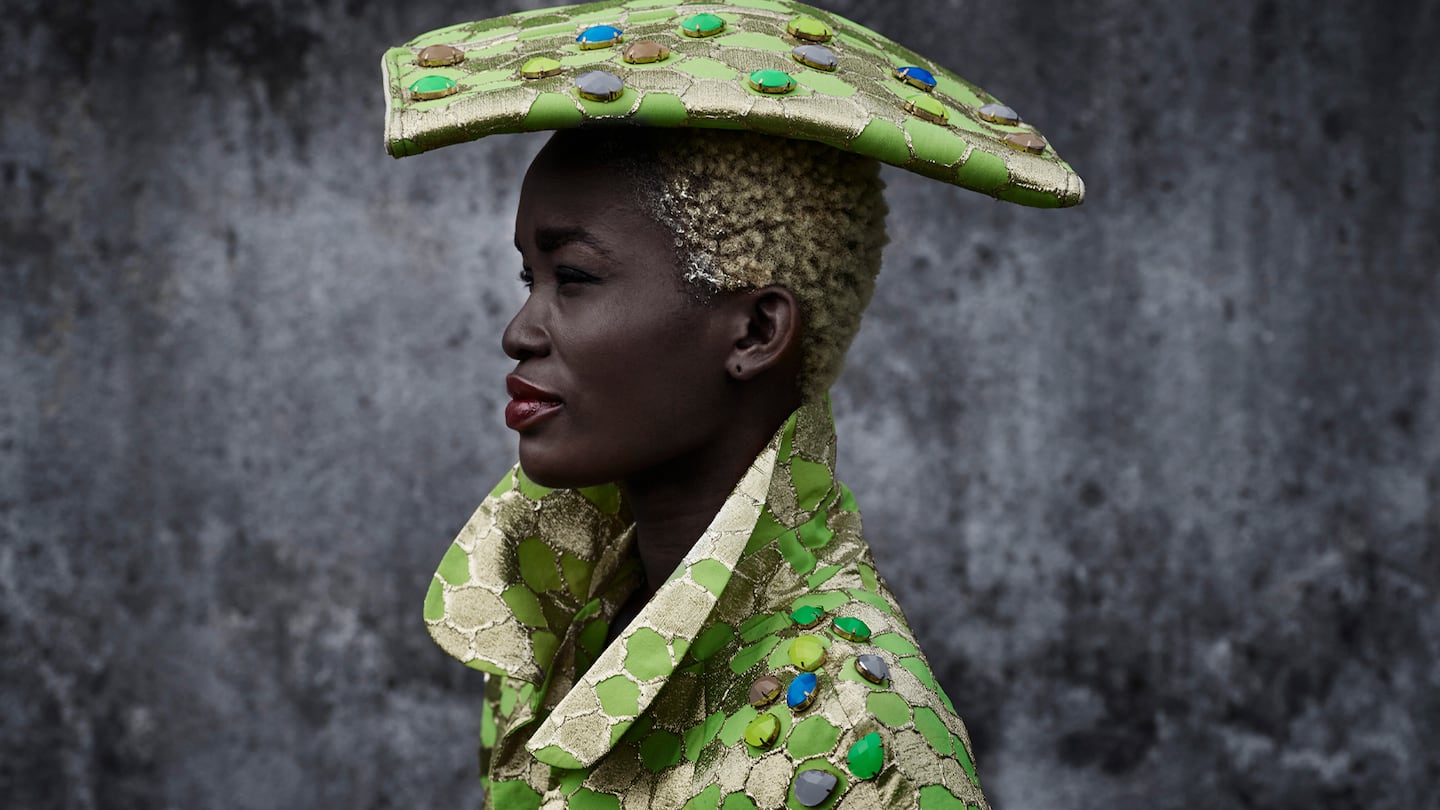
Companies that have the potential to shape the business ecosystem around them usually decide to cluster around others in the biggest regional fashion capital but, occasionally, the most exciting ones emerge in unexpected locations.
“The reason why I’ve decided to anchor Birimian in Côte d’Ivoire is because I really see the potential of Abidjan being the capital of African creative [expression], the same way as Paris is the international city for fashion and culture,” said Laureen Kouassi-Olsson, founder and chief executive of Birimian Ventures, an investment firm she founded in 2020 dedicated to developing African luxury brands.
Over the past two decades, mega-cities in South Africa, Nigeria, Egypt and Kenya have emerged as the most prominent fashion capitals of Africa, serving as industry hubs dominating the wider economies of their respective sub-regions. Until recently, Côte d’Ivoire’s commercial capital Abidjan didn’t even register as being among the next tier of cities in emerging fashion markets like Senegal, Morocco, Angola, Tanzania or Ghana.
But thanks to fashion entrepreneurs with a pan-African vision focused on international trade like Birimian’s Laureen Kouassi-Olsson and Moulaye Tabouré, founder of e-commerce platform Afrikrea, that is starting to change.
ADVERTISEMENT
“The reality is, when you look at Côte d’Ivoire, it’s a good example of how African fashion is diverse and unique,” Kouassi-Olsson added, referring to the country also known as Ivory Coast.
Like Kouassi-Olsson, Tabouré is a well-travelled executive who chose Côte d’Ivoire to base his business over more obvious alternative locations in Africa.
Having grown up in Mali, Tabouré worked in France and other countries before setting up his e-commerce platform in Abidjan in 2016. The fashion tech entrepreneur, who according to Crunchbase data has so far secured $8.4 million in funding and grown his platform to reach sellers from 47 out of 54 African countries, recently changed Afrikrea’s business model from a pure marketplace to an all-in-one SaaS solution known as Anka.africa.
Kouassi-Olsson’s route to Abidjan was through a career in global finance. Born in Côte d’Ivoire, she specialised in mergers and acquisitions in London before relocating to Paris to pursue private equity. Six years ago, she moved back to the continent and launched her own firm focused on the fashion sector, inking a partnership with Paris-based private equity firm Trail Capital in 2022 to provide annual investment of €5 million (approximately $5 million) to a portfolio of African brands.
Though her company is headquartered in Côte d’Ivoire, it is revealing that only three of the ten brands selected last year for Birimian’s accelerator programme are based in that country: Loza Maléombho, who was born to Ivorian parents in Brazil and raised between Côte d’Ivoire and the US, Simone Sidibé and Gina Kakou-Marceau’s namesake label Simone and Elise and Aristide Loua’s Kente Gentlemen.
The seven others selected last year are designers from other nations including the giants of the continent Nigeria and South Africa. It is a similarly diverse group of African nationalities in this year’s crop of designers for the accelerator. This seems to underscore Côte d’Ivoire’s position as an emerging centre for fashion enterprises with regional or global ambitions.
But that is not to say that its domestic market isn’t attractive to global fashion brands looking to expand on the continent. Far from it.
Côte d’Ivoire, a country of over 27 million people, is francophone West Africa’s economic hub and exerts significant influence in the region. Though its political capital is Yamoussoukro, Abidjan is the centre of business and a far bigger city with over five million residents.
ADVERTISEMENT
The international community has praised Côte d’Ivoire’s swift recovery from the 2011 post-election conflict that claimed 3000 lives and paralysed the economy for many months. Only a decade earlier, experts had predicted a sluggish return of investors, most of whom shut shop and fled to safer shores. Other forecasts suggested some investors might never come back.
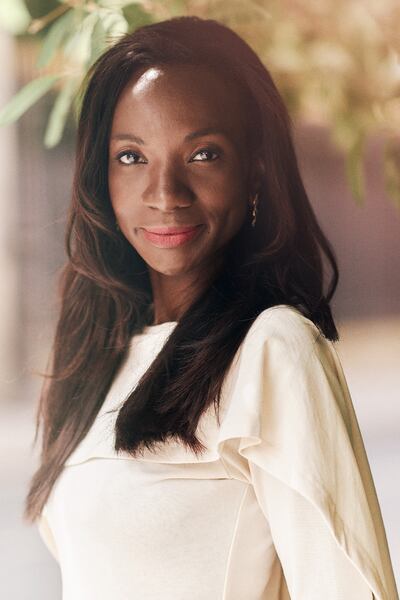
“That was exactly our fear because at the end of the war everything was down and prospects looked gloomy for a quick recovery. However, it worked out like a miracle,” said Solange Amichia, chief exeucitve of the Centre for the Promotion of Investments in Côte d’Ivoire (CEPICI).
Indeed, the market has largely overcome that period of instability. Côte d’Ivoire emerged as one of the most robust economies in Africa, growing at an annual average rate of 8 percent between 2012 and the pre-pandemic peak of 2019, according to the World Bank. Today it is by far the largest economy in French-speaking West Africa.
“Within a short period of time every sector had people coming and knocking for investment opportunities,” Amichia added.
One of those sectors was retail. Within five years, four multimillion-dollar shopping malls saw the light of the day in Abidjan. Existing shopping centres underwent major upgrades as they geared up for impending competition from the new players.
Before the war, Côte d’Ivoire had already started emerging as an attractive destination for foreign investment thanks in part to its relatively prosperous consumer base.
Today, the World Bank places it among the top third of all African countries in terms of GDP per capita ranking. Its infrastructure is also relatively reliable compared to some of its neighbours. Business owners don’t typically need to rely on private generators to power malls like in Nigeria, for example, or in boreholes to provide potable water for shops and restaurants like in Ghana.
It is therefore unsurprising that the crisis didn’t scare away international brands like Mango, Tommy Hilfiger, Levi’s, Aldo, Lacoste and Yves Rocher, which have thriving outlets at Cap Sud, Cap Nord, Sococe and La Djibi — the four long-established malls in Abidjan owned by Prosuma Group.
ADVERTISEMENT
Prosuma is one of the country’s biggest retail investors. Founded in 1966 by Abou Kassam and Karim Fakhry, it counts Adnan Houdrouge of Mercure International as a shareholder. Mercure, in turn, is the local joint-venture partner for brands like Tommy Hilfiger, which opened a shop in Abidjan last year.
Other shopping centres have been entering the market too. Turkish denim wear brand Colin’s chose to open its first sub-Saharan African store in Cosmos, a new mass market mall and emerging competitor of Prosuma Group properties. Built in 2018 by British real estate investment company HC Capital Properties and Lebanese group Sarada, Cosmos is operated by real estate service firm Cushman & Wakefield.
“It is the only mall that caters for the lower [income consumer market] in Abidjan. The project has visibly transformed not only the physical looks of the municipality but also the shopping culture of its inhabitants,” says Gilbert Kafana Koné, the mayor of Yopougon, the biggest commune of Abidjan and Cote d’Ivoire’s most populous district of one million people, where Cosmos is based.
However, four years after its inauguration, the €27 million complex that sits over a three-hectare space, is struggling to attract many foreign brands, which are mostly drawn to the malls situated in the Abidjan communes of Marcory and Cocody where the local affluent and emerging middle classes tend to live.
Guess, for example, chose to maintain its current location at Cap Sud in Marcory alongside its other flourishing outlet situated a few miles away at Prima Center, owned by Hassan Hyjazi. The Ivorian-Lebanese business tycoon expanded to neighbouring Guinea a few years ago and currently runs the biggest mall in that country also called Prima Center.
Prima Center in Abidjan is also home to one of the country’s three stores opened by French players like menswear brand Celio and accessories brand Lancaster as well as Canadian footwear label Aldo. Sportswear and activewear are growing retail segments in Cote d’Ivoire and the sector is dominated by Adnan Houdrouge of Mercure International.
The 73-old-year Monaco-based businessman of Lebanese-Senegalese origin launched his African operations in Cote D’Ivoire in 1986. His City Sports shops, represented at seven of the nine malls in Abidjan, are locations for global brands such as Nike, Adidas, New Balance, Asics, Puma and Converse. He is also the local representative of Courir, a French multichannel retailer of branded sports and casual wear, which has outlets at Playce’s two malls, and Go Sport, another multi-brand retailer, which can be found at Cap Sud.
Homegrown fashion brands have thrown their hats in the formal retail ring too. Côte d’Ivoire’s most well-respected designer, Pathé Ouédraogo, originally from Burkina Faso, says selling products at big malls takes “you to the next level as a designer”
“[Having] foreign brands [in the same mall] gives you the deserved respect because you’re all basically courting the same clients,” said the 71-year-old, who celebrated his 50-year career anniversary last year.
Ouédraogo designs mostly men’s shirts using cotton fabrics with intricate patterns under his brand known as Pathé'O, which has been worn by famous personalities including the late Nelson Mandela, the King of Morocco Mohammed VI, Rwandan president Paul Kagame, Côte d’Ivoire former and current presidents Alassane Ouattara and Laurent Gbagbo and Nigerian billionaire businessman Aliko Dangote.
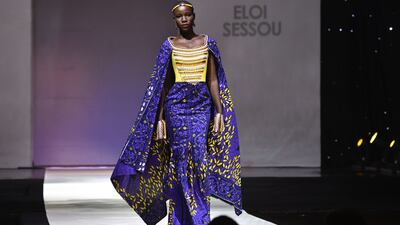
Ouédraogo expanded to Cosmos immediately after the mall launched while maintaining his other Pathé'O outlets at Playce Marcory and Playce Palmeraie, a joint venture between CFAO and Carrefour. He also runs two unpretentious shops in Treichville where he started off and continues to use as his main workshop.
“Ivorian and other African designers need to shift from artisan offering to mass production. That’s when we will be able to compete with foreign brands and reap the fruits of our hard and back-breaking labour,” Ouédraogo said.
Another prominent local designer, whose products can be found at the malls, is Moussa Cissé, also known as Ciss St Moise, the name of his brand. Cissé operates stores at Playce’s two malls, Cosmos and two street locations in Triechville and Deux Plateaux. Some of his notable clients are former Chelsea footballer Didier Drogba and a cluster of Ivorian government ministers. He also organises the popular annual fashion festival Nzassa Mode in Abidjan.
Besides Nzassa Mode, there are other competing platforms for local and regional designers in Abidjan. One of the most popular is the Afrik Fashion Week, founded by Isabelle Anoh, a journalist and television personality who was also editor-in-chief of local fashion magazine Afrikfashion. Designer Roger Bango launched Abidjan Fashion Week in 2017 and Fatim Sidimé organizes the event Les Awards du Mannequinat Africain.
“I feel like I want to say four or five years ago, the mentality switched from consuming fashion from international designers to being more interested in local fashion designers, which also coincides with [the growth of] new emerging fashion designers in the country,” says Maléombho.
Other Ivorians in the diaspora, notably in France, are showing interest in the fashion industry back home, among the hundreds registered in the category by CEPICI every year.
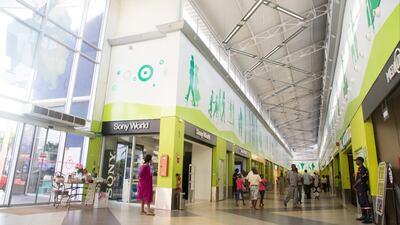
Paris-based Aziz Doumbia returned to his homeland of Côte d’Ivoire to tap into the growing industry. In 2018, he launched a concept store in Abidjan called Dozo that has pulled together an array of local designers like Loza Maléombho, whose accessories were worn by Beyoncé for her Disney production Black is King; contemporary menswear brand Kente Gentleman, and accessory brand Maison Oloro.
Doumbia describes the store as a hub, but most importantly as an opportunity to bring local designers who found an audience online and abroad into a physical space in the bustling city.
“I discovered that there were really interesting brands, and everybody in the city was really interested in those brands but didn’t know where to find them,” says Doumbia.
That is something Birimian Ventures founder Kouassi-Olsson has taken on board. Though she has so far focused on brokering international partnerships with the likes of Première Classe trade show and the Institut Français de la Mode in Paris, the local and regional markets are also a priority for her to develop the designer businesses she has invested in.
“Brand building and development sits at odds with the constraints [of private equity], and we also understand that brands and designers need more than just financing to sustain their operations — they need access to an ecosystem to overcome common issues such as bottlenecks in production, distribution channels, and administration and budgeting challenges,” said Kouassi-Olsson.
Gilles Touré, a designer who worked at Paco Rabanne in Paris before returning to his home country, is a household name in the Ivorian fashion industry having dressed Ivorian First Lady Dominique Ouattara among others. He operates a retail outlet called La Bootik on Boulevard des Martyrs in Cocody, an affluent suburb of Abidjan.
Touré and other upmarket designers in Abidjan now release new collections as drops on social media and take orders online for in-store pick-up or home delivery. Designers like Lafalaise Dion, whose clothes have been worn by Beyoncé and Janelle Monae, found popularity on Instagram while other designers use WhatsApp.
Fashion entrepreneurs and traders of all kinds are also setting up shop on platforms like Jumia, the pan-African e-commerce giant.
“I sell hundreds of units per week. Jumia takes care of the delivery and gets a cut which is a fraction of the unit price,” said Ivorian fashion entrepreneur Sandrine Maflan Koffi. “No inventory, no set up fees. All you need is a commercial register for your brand or company which costs around 30,000 CFA francs ($45).”
Mall-based fashion retailers, like Nanawax, have begun to showcase their products online with decent results too.
“Presently, our clientele is growing thanks to our online presence,” says Sali Koné, managing director of Nanawax, whose mostly wax-based unisex clothing store is located at Ivoire Trade Center, the newest shopping mall opened to the public in Abidjan by regional real estate giant PFO Africa in September 2021.
Côte d’Ivoire isn’t home to just retail and small-batch fashion production. The Dutch textile producer of African prints, Vlisco Group, whose four labels Vlisco, Woodin, Uniwax and GTP have been shaping Ivorian couture for decades, founded a factory for Uniwax as early as 1967 situated in the industrial zone of Yopougon, which manufactures some of the company’s wax fabrics.
Vlisco Group products can be found across many African markets including a retail network in most of the malls in Côte d’Ivoire. But only one other countries on the continent, Ghana, serves as a manufacturing base since most of the group’s production remains in its Netherlands headquarters.
Experts say the time is right for more international fashion businesses to enter the cosmopolitan Côte d’Ivoire market. In addition to the local upper and middle class consumer base, there are a significant number of West African residents from other francophone nations who drive consumption in Abidjan.
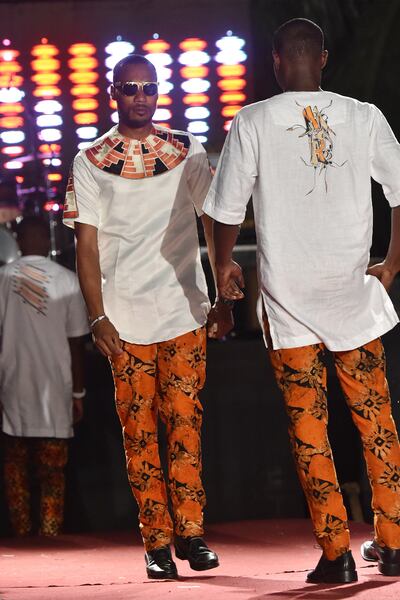
Despite the inflationary pressure generated by the Russia–Ukraine conflict, Côte d’Ivoire is expected to continue to attract high levels of foreign investments thanks in part to the continued vibrancy and stability of the economy. Following a contraction in 2020 due the Covid-19 pandemic, the country experienced a GDP growth of 7.4 percent in 2021, driven by investments and consumption, with projections for 2023 and 2024 standing at 6.4 percent on average, according to the IMF.
Infrastructure is also improving. Local authorities are preparing to launch the construction of the much-hype $2 billion Abidjan Metro this year. Its 37.4 km railway will be built across eight districts and connect the less affluent areas to the city centre. City planners believe the project will attract investments like more hotels and shopping malls.
Local and regional African fashion entrepreneurs should also continue to be inspired to establish businesses in the country, suggest industry leaders.
“I believe there are no more excuses for fashion designers in Côte d’Ivoire,” said Ouédraogo of Pathé'O.
“We now have numerous spaces, avenues to expose our products and attract customers. From old supermarkets to the new mega malls and online channels we can showcase our talents and promote our careers like never before.”
Additional reporting by Ashley Okwuosa
Local streetwear brands, festivals and stores selling major global labels remain relatively small but the country’s community of hypebeasts and sneakerheads is growing fast.
This week’s round-up of global markets fashion business news also features Senegalese investors, an Indian menswear giant and workers’ rights in Myanmar.
Though e-commerce reshaped retailing in the US and Europe even before the pandemic, a confluence of economic, financial and logistical circumstances kept the South American nation insulated from the trend until later.
This week’s round-up of global markets fashion business news also features Korean shopping app Ably, Kenya’s second-hand clothing trade and the EU’s bid to curb forced labour in Chinese cotton.